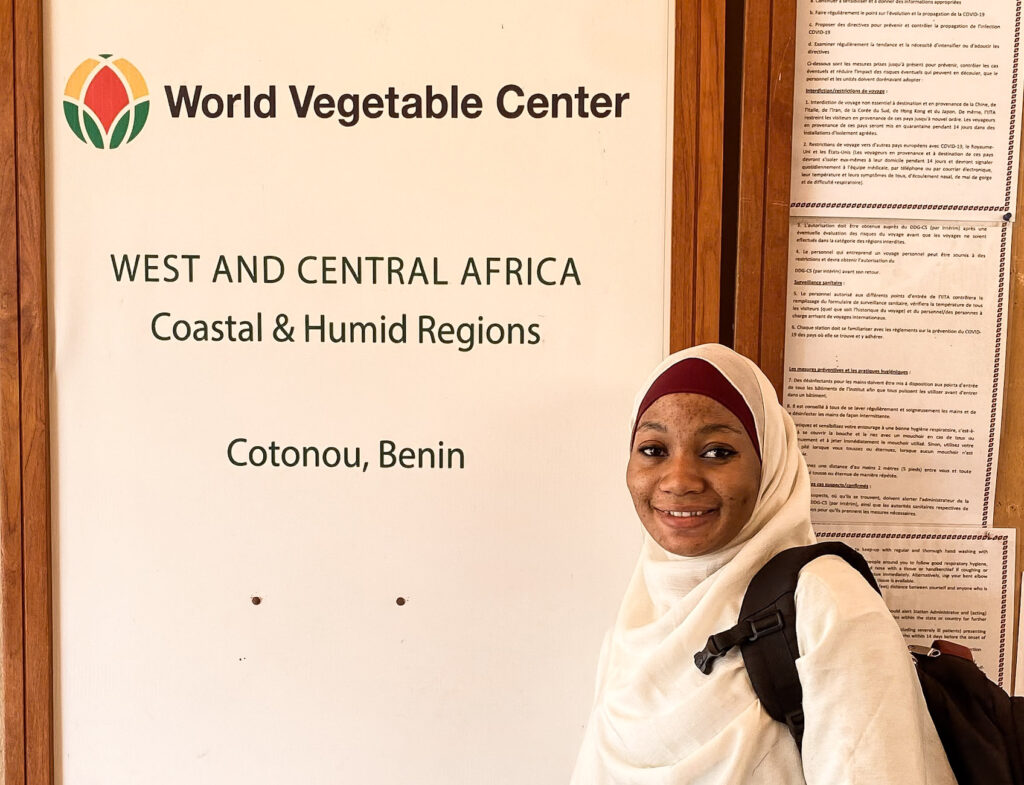
At 24 years old, Maryam Sadiq Ismail, a mother of two and a graduate from the Department of Soil Science at Bayero University in Kano, had aspirations of becoming a lecturer. However, she found her way down a different path when her passion for vegetable farming was rekindled during her Students Industrial Work Experience Scheme (SIWES) internship at Macks Farm Nigeria Limited in Kogi State where she served as a farm manager.
Driven by a desire for more knowledge and a deeper understanding of vegetable farming, Maryam applied to join the HortiNigeria Sector Professionals Training of Trainers (ToT) and participated in the 2023 cohort. This program, facilitated by the Netherlands-African Business Council (NABC) for HortiNigeria, offered comprehensive courses on sustainable vegetable production. This ToT program proved to be a game-changer for Maryam, filling gaps in her knowledge about vegetable farming. She learned advanced calculations for fertilization and integrated pest management techniques and met experts and farmers within the horticulture value chain, further fueling her determination to master vegetable farming.
In December 2023, Maryam had the opportunity to join the HortiNigeria team on a learning visit to the Republic of Benin. This trip included visits to the World Vegetable Center; the Genetics, Biotechnology, and Seed Science Unit (GBioS); and Songhai, a zero-waste farm. Each field visit demonstrated innovative agricultural practices for Maryam and her team members to learn from.
“I was impressed by their innovative irrigation systems using solar panels, their organic farming practices at Songhai, and the seed improvement and preservation techniques at GBioS. It all showed the powerful role innovation can play to boost productivity.”
Maryam Sadiq ismail
In 2024, Maryam started to share her newfound knowledge with others by conducting training sessions for 30 women and youth on the fundamentals of vegetable farming, utilizing demonstration plots, and collaborating as a volunteer with Vertical Farm Ventures Limited in Kano.
Looking toward the future, Maryam plans to continue to educate her community on vegetable farming. She believes this community education will increase productivity and reduce the country’s vegetable supply gap. She also intends to add vegetable production to her existing maize farming business.
The HortiNigeria program (2021-2025), funded by the Embassy of the Kingdom of the Netherlands (EKN) in Nigeria, aims to facilitate the development of a sustainable and inclusive horticulture sector that contributes to food and nutrition security in Nigeria.




